Current Postdoc Fellows
The CCB currently supports post-doctoral Fellows working at most NIH Institutes with neuroscience research. The fellows' research focus span a wide range of topics related to compulsive behaviors, that include synaptic mechanisms driving compulsive drug taking, neural circuitry that mediates relapse, and behavioral paradigms that promote compulsive overeating.
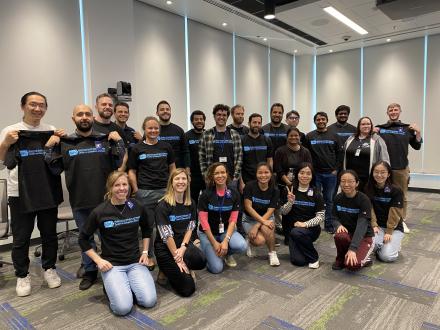
First Year Fellows
Choa Sung, Ph.D. (CC)

Choa is a Postdoctoral Fellow in the Translational Biobehavioral and Health Disparities Branch at the NIH Clinical Center, under the guidance of Dr. Katherine Maki. Her research focuses on conducting a comprehensive investigation of the physiological and behavioral determinants of health in individuals with substance use disorders. Her CCB project aims to understand how the co-use or withdrawal of alcohol and cannabis affects sleep and microbiome-related phenotypes.
Working as a clinical researcher and a nurse, Choa has received extensive training in the integration of biological and behavioral data into clinical research. Choa earned her Ph.D. in Nursing Science from the University of Illinois Chicago in 2023. Her graduate work focused on interrogating the effect of gut-brain signaling mechanisms and their impact on the recognition of symptoms in kidney transplant recipients. Outside of the lab, Choa enjoys cooking and baking.
Nisa Roy, Ph.D. (NCCIH)

Dr. Nisa Roy is a visiting postdoctoral fellow at the Section on Behavioral Neurocircuitry and Cellular Plasticity, led by Dr. Yarimar Carrasquillo at National Center for Complementary and Integrative Health (NCCIH). As a 2024 CCB fellow, Dr. Roy aims to identify the cell type and projection specific role of CeA to PAG pathway in behaviors that lie at the intersection of stress and pain. She will combine patch clamp electrophysiology, brain injections, anatomy, opto-assisted circuit mapping, in-vivo photometry, behaviors, and patch sequencing to identify alterations in amygdala circuitry upon stress and pain conditions.
Dr. Nisa has graduated from University of Calcutta with a Bachelor’s degree in Zoology and a Master’s in Neuroscience. She was a Project Associate at Indian Institute of Technology Kanpur following which she pursued her Ph.D. in Neuroscience from Monash University in 2023. Her doctoral work revealed a potential link between a novel orphan G-protein coupled receptor, GPR139, and emotion-related cognitive impairment associated with psychiatric disorders. Nisa is passionate about attending fitness classes, voyaging, photographing, and finding good food in the grocery.
David Haggerty, Ph.D. (NIAAA)

David Haggerty is a first year IRTA postdoctoral fellow in the Laboratory of Integrative Neuroscience with Dr. David Lovinger. David’s primary focus is studying how alcohol-related neuroadaptations alter motor behaviors that can initiate and perpetuate compulsive alcohol seeking and consumption. David’s CCB project specifically focuses on developing and validating new methods to track real-time alcohol drinking behaviors that utilizes machine learning approaches to uncover specific behavioral sequences that predict compulsive alcohol use.
David completed a masters in cell biology and a PhD in neuroscience and bioinformatics at the Indiana University School of Medicine, where he focuses on how corticostriatal synapses govern binge drinking behaviors. David also enjoys developing new tools and methods to bring novel data insights and analyses techniques to the laboratory to expand our understanding of animal behavior and neural circuitry that encodes drug use. In his free time, he likes to play golf and hike in Maine.
Priscila Correa Antonello, Ph.D. (NIAAA)
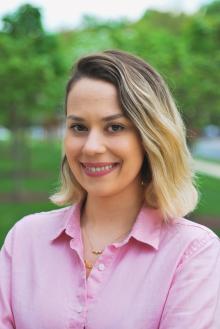
Priscila is a Visiting Postdoctoral Fellow in the Section on Neural Circuits, led by Dr. Michelle Antoine at the National Institute on Alcohol Abuse and Alcoholism. Her research focuses on understanding the impact of genetic and environmental insults on neural signal processing within brain networks, leading to neurodevelopmental disorders. Her CCB project involves assessing neural mechanisms underlying behavioral flexibility in a mouse model of prenatal alcohol exposure.
She received her B.S. in Biomedical Engineering from the Federal University of Uberlândia, Uberlândia, Brazil, her M.Sc. in Electrical Engineering, specializing in Biomedical Engineering, from the State University of Campinas, São Paulo, Brazil, and her Ph.D. in Molecular Biology from the Federal University of São Paulo, São Paulo, Brazil. Her work combined tools and approaches from theoretical and experimental neuroscience to understand how neurons wire together to form networks that promote both typical and abnormal brain function.
When not in the lab, Priscila enjoys practicing yoga and salsa dancing.
Qingfang Liu, Ph.D. (NIDA)
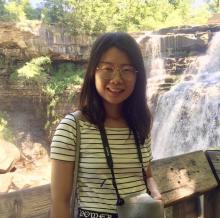
Qingfang is a research fellow at the Learning and Decision-Making Unit, under the guidance of Dr. Thorsten Kahnt at the National Institute on Drug Abuse (NIDA). Qingfang uses computational modeling, fMRI, and TMS to study learning and decision-making in humans. Her CCB project aims to dissect the intricate mechanisms guiding human inference processes, with a particular emphasis on exploring the roles of the orbitofrontal cortex and hippocampus.
Qingfang received her PhD in Psychology from the Ohio State University, where she focused on understanding self-control mechanism by investigating intertemporal choice decision making. She enjoys doing Pilates in her spare time.
Avinash Vaidya, Ph.D. (NIDA)
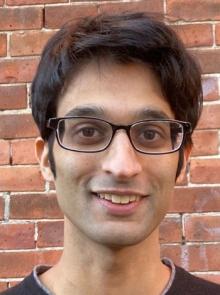
Avinash is a research fellow in the Learning and Decision-Making Unit within the National Institute on Drug Abuse Intramural Research Program. Avinash’s research is focused on understanding the neural basis of adaptive behavior, and how dysfunction within these circuits contributes to behavioral rigidity and automaticity. Specifically, he uses functional neuroimaging and transcranial magnetic stimulation to investigate the circuitry that supports the learning about the structure of tasks – the hidden rules and associative knowledge that we leverage to learn faster and act flexibly.
Avinash completed his PhD at McGill University studying the effects of focal frontal lobe lesions on decision-making and learning. Before coming to NIDA, he completed a postdoctoral fellowship at Brown University using functional neuroimaging to study circuits supporting inference during value judgment. While at Brown, Avinash bought half a cord of firewood to keep his apartment warm. He subsequently had to dispose of the same wood when it began to grow mold a month later.
Phil Witkowski, Ph.D. (NIDA)
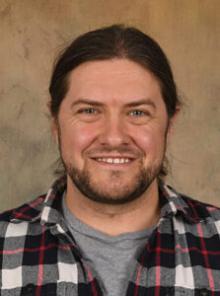
Phil is a Postdoctoral Fellow in Dr. Thorsten Kahnt’s lab within the Learning and Decision-Making Unit of the National Institute on Drug Abuse (NIDA). As a CCB Fellow, Phil uses functional imaging (fMRI) and computational modeling to understand the role of Orbitofrontal cortex (OFC) in learning and decision making in humans. His goal is to test whether the OFC is necessary for learning causal associations, and if the OFC leverages these associations to motivate behaviors which lead to specific reward.
Phil received his PhD in Psychology from the University of California, Davis in 2023 (Go Aggies!). As a graduate student he studied how the brain implements credit-assignment, as well as learning and attention. Outside of research, Phil enjoys historical fencing with his friends and woodworking.
Matt Broomer, Ph.D. (NIDA)

Matt is a postdoctoral fellow in the Neural Engineering Unit at NIDA under the mentorship of Dr. Da-Ting Lin and Dr. Yavin Shaham. He is interested in how animals learn to change and inhibit their behavior, particularly during operant punishment. His CCB project uses in vivo calcium imaging and deep learning behavioral analyses to examine activity in brain regions such as the nucleus accumbens and the infralimbic cortex during punishment learning.
Matt received his Ph.D. in Psychology at the University of Vermont in the lab of Dr. Mark Bouton. Outside the lab, he enjoys visiting small educational museums and listening to the Beach Boys.
Ginevra D'Ottavio, Ph.D. (NIDA)
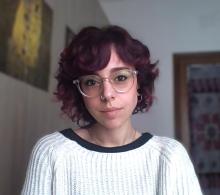
Ginevra is a postdoctoral fellow in the laboratory of Dr. Yavin Shaham at the National Institute on Drug Abuse (NIDA). As a CCB fellow, under the guidance of Dr. Shaham and Dr. Michaelides, Ginevra will explore the neurobiological alterations within the opioid system underlining social withdrawal induced by excessive opioids consumption.
Ginevra received her PhD in Behavioral Neuroscience from Sapienza University of Rome. Her doctoral research focused on developing an animal model of heroin addiction that closely mirrors the social withdrawal observed in humans with opioid use disorder.
Ryan Tyler, Ph.D. (NIDA)
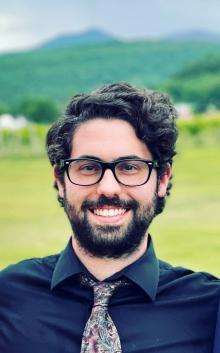
Ryan is a postdoctoral IRTA fellow in the Clinical Psychoneuroendocrinology and Neuropsychopharmacology (CPN) section (NIDA/NIAAA) led by Dr. Lorenzo Leggio. He is investigating the effects of environmental enrichment on alcohol drinking and craving in people with alcohol use disorder (AUD). He will use ecological momentary assessment (EMA) to collect real-time data on craving and drinking, as well as a laboratory-based assessment of alcohol cue-reactivity. His CCB project will combine this clinical research with a rat model of compulsive-like alcohol consumption to further elucidate molecular mechanisms that underlie the effects of environmental enrichment on alcohol self-administration.
Ryan received his Ph.D. from the University of North Carolina, Chapel Hill SOM in the lab of Dr. Joyce Besheer. His thesis work used an animal model of traumatic stress (exposure to a predator odor) and drug discrimination techniques to investigate the long-term effects of a traumatic stressor on interoceptive sensitivity to alcohol in rats. He found that a single exposure to a predator odor stressor resulted in potentiated sensitivity to the interoceptive effects of alcohol in male, but not in female rats. Follow up experiments suggested that this effect was driven by a potentiation in the stimulatory or rewarding effects of alcohol. As such, this work provides a plausible explanation for one way in which traumatic stress may impact alcohol consumption. Before graduate school, Ryan trained as a post-baccalaureate IRTA fellow in Dr. Nora Volkow’s lab. There he investigated the effects of heavy drinking on neuroinflammation using positron emission tomography both in humans with AUD and in a rodent model of alcohol dependence. He also used high-performance liquid chromatography to help in the development of novel radiotracers for PET imaging. In his free time, Ryan enjoys reading, swimming, traveling, and spending time with friends.
Linda Amarante, Ph.D. (NIMH)
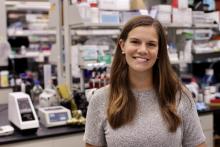
Linda is a postdoctoral fellow in the Laboratory on the Neurobiology of Compulsive Behaviors led by Dr Veronica Alvarez at the National Institute of Mental Health (NIMH). Linda’s research interests involve understanding the role of the frontal cortex and basal ganglia during value-based decision making. Her CCB project will use fiber photometry in mice during a dynamic foraging task to assess how direct pathway D1 medium spiny neurons within striosome/patch compartments compute information about value and action to promote flexible and adaptive behavior.
Before joining as a postdoc at NIH, Linda started her postdoc with Dr Jeremiah Cohen, first at Johns Hopkins School of Medicine and then at the Allen Institute for Neural Dynamics when Dr Cohen moved his lab there in 2022. She earned her Ph.D. in Neuroscience from American University in March 2020 where she studied the role of the frontal cortex in reward-based behaviors in Dr Mark Laubach’s lab. Outside of the lab, Linda enjoys coaching and playing softball and baseball.
Brett Hathaway, Ph.D. (NIMH)
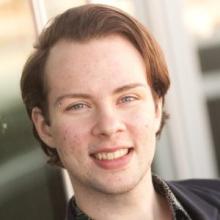
Brett is a postdoctoral fellow in the Unit on the Neural Computations in Learning led by Dr. Angela Langdon at the National Institute of Mental Health. They are currently working in collaboration with Dr. Geoff Schoenbaum at the National Institute on Drug Abuse. Their CCB project aims to investigate the role of phasic dopamine responses in tracking sequential predictive associations between rewards. This project will combine behavioral data, electrophysiology, and computational modeling to understand whether dopamine reward prediction errors can carry predictive information about subsequent outcomes, as well as about immediate expected reward.
Brett earned their PhD in neuroscience from the University of British Columbia under the supervision of Dr. Catharine Winstanley. Their PhD work examined the cognitive and neurobiological mechanisms of cue-induced impairments in cognitive flexibility and risky choice. Outside of the lab, Brett enjoys spending time in nature, video games, and travel.
Hye Young Ryu, Ph.D. (NINDS)
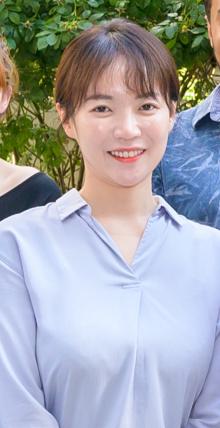
Dr. Ryu is a visiting fellow in the receptor biology section led by Dr. Roche at NINDS. She is studying the mechanisms underlying NMDAR trafficking and synaptic expression. Her project with CCB is studying to elucidate the synaptic dysfunction resulting from various rare variants in synaptic proteins through deep sequencing of patient populations. Her research combines electrophysiology, behavior, and iPSCs as a comprehensive approach to investigating synaptic and behavioral effects of NMDA receptor variants.
Dr. Ryu earned her molecular and cellular biology bachelor's degree from the University of Illinois at Urbana-Champaign. After that, she earned her Ph.D. in Neuroscience from Daegu Gyeongbuk Institute of Science & Technology (DGIST), where she studied the regulatory mechanisms governing programmed death. She is currently a postdoctoral researcher in Dr. Katherine Roche's lab, studying glutamate receptor biology and its implications for neurological disorders. Research on specific genetic mutations is devoted to understanding how certain mutations affect the brain.
Second Year Fellows
Yili Zhao, Ph.D. (NCCIH)

Yili is a visiting postdoctoral fellow at the Section on Affective Neuroscience and Pain, under the guidance of Dr. Lauren Atlas at the National Center for Complementary and Integrative Health (NCCIH). Her research investigates the mechanisms underlying social reinforcement learning of other’s expressions of pain. Her CCB project explores the impact of alcohol consumption, believed to modify social cognition, on the recognition and learning of painful facial expressions.
Yili earned her Ph.D. in Natural Sciences, with a specialization in Psychology, from University of Vienna, under the mentorship of Dr. Claus Lamm. Her doctoral research focused on understanding the neural underpinnings of empathy and emotion recognition of pain and disgust in human. She employs a broad spectrum of investigative methodologies, including behavioral measures, univariate and multi-voxel fMRI analysis, computational modeling, and psychopharmacological administration.
Bharath Chandra Talluri, Ph.D. (NEI)
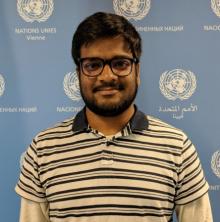
Dr. Talluri is a visiting fellow in the Visual Decision-Making section led by Dr. Hendrikje Nienborg at the Laboratory of Sensorimotor Research. At NIH, he is investigating the neurophysiological mechanisms underlying decision-making and visual perception using electrophysiological methods in non-human primates. His CCB project aims to identify the neural basis of abstract perceptual choices and the interplay between motivational states and decision-making behavior.
Dr. Talluri attained his Bachelors in Electrical Engineering from Indian Institute of Technology Roorkee, Masters in Cognitive Science from University of Edinburgh, UK, and PhD in Cognitive Neuroscience from the University Medical Center Hamburg- Eppendorf, Germany. During his PhD, he investigated the mechanistic and neural basis of choice-induced biases in decision-making. His research primarily addresses how the brain combines external evidence with internal beliefs and states to choose a course of action using complementary approaches like psychophysics, neuroimaging (fMRI & MEG), pupillometry, electrophysiology, and computational modeling. Bharath is a coffee-lover and underwent training as a barista.
Lee Peyton, Ph.D. (NIAAA)
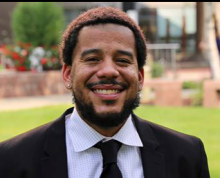
Dr. Lee Peyton is currently an IRTA postdoctoral researcher in the Laboratory for Integrative Neuroscience at NIAAA. His project with the CCB aims to investigate the role of the dorso-lateral-striatum (DLS) dopamine D1 spiny projection neurons to the substantia nigra reticulata (SNr) in habitual alcohol seeking.
Dr. Peyton received his Ph.D. in Molecular Pharmacology and Experimental Therapeutics from Mayo Clinic in Rochester, MN. He uses behavioral, pharmacological, and physiological techniques to investigate how cell specific brain circuits are involved in alcohol consumption and substance use disorders. Outside of work, he enjoys fishing.
Kathryn Biernacki, Ph.D. (NIDA)
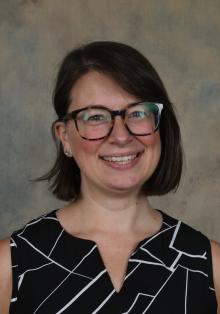
Dr. Biernacki is a Research Fellow in the Cognitive and Pharmacological Neuroimaging Unit of the National Institute on Drug Abuse Intramural Research Program, under the guidance of Dr. Amy Janes. Her works focuses on understanding how novel interventions impact neural mechanisms of decision-making and craving in people with substance use disorders. She is currently studying how orexin antagonism modulates the neural correlates of craving and reward in people who use nicotine. Dr. Biernacki’s CCB project will focus on modulating decision-making in people with opioid use disorder using functional-connectivity guided neurostimulation.
Dr. Biernacki received her Ph.D. in Psychology in 2018 from the Australian Catholic University in Melbourne. She then completed a post-doctoral fellowship at Rutgers University in 2022, where she studied how craving impacts decision-making using computational psychiatry methods, as well as the impact of brain stimulation on reward processing in people with opioid use disorder. In her spare time, Kathryn enjoys cooking, yoga and traveling.
Pamela Miranda Tapia, Ph.D. (NIDA)
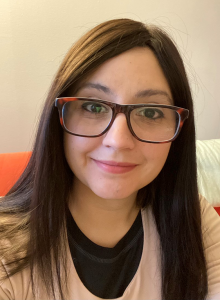
Pam is a postdoctoral fellow in the Neuronal Circuits and Behavior Section, led by Dr. Yeka Aponte at the National Institute on Drug Abuse. She is interested in understanding the neural circuits that underlie survival behaviors such as feeding as well as the addictive and rewarding properties of food. Her CCB project aims to understand the mechanisms that underlie the effects of diet-induced obesity and bariatric surgery on hypothalamic feeding circuits using a combination of electrophysiology, functional imaging, and behavior.
Pam received her PhD in Neuroscience from the University of Alberta, where she focused on the neural control of breathing. She is a certified diver and in her spare time she enjoys painting.
Ido Maor, Ph.D. (NIDA)
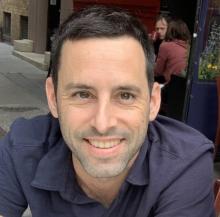
Ido is a Postdoctoral Fellow in Dr. Geoffery Schoenbaum lab within the Behavioral Neurophysiology Neuroscience Section of the National Institute on Drug Abuse (NIDA). As a CCB Fellow, Ido uses electrophysiology to record neurons from the Orbitofrontal cortex and other upstream and downstream cortical areas in freely moving rats while they learn to solve multiple problems, involving similar learning materials but very different rules. His goal is to test whether co-representation of these contradictory rules correlates with the ability to accurately deploy the correct behavioral schema.
Ido received his PhD in computational neuroscience from the Hebrew University in Jerusalem in 2017. As a graduate student, he studied the neural substrate of auditory perceptual learning. In his free time, he enjoys hiking with his family and playing the drums.
Ken Negishi, Ph.D. (NIDA)
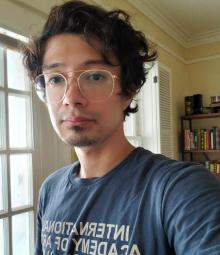
Ken is a postdoctoral fellow in the Behavioral Neuroscience Research Branch at NIDA under the guidance of Dr. Yavin Shaham. His CCB project aims to use rat models of voluntary abstinence from drugs to study the incubation of craving phenomenon. Ken hopes that his work will improve our understanding of mechanisms and neural circuits of relapse to drug seeking.
Ken began as a student of neuroanatomy at the University of Texas at El Paso. His graduate work focused on mapping connections of the rat prefrontal cortex using pathway tracing and interpretation of Nissl stains. Outside of the lab, he enjoys cooking/baking, fiction, and getting himself hurt while trying to land skateboarding tricks.
Claire Gao, Ph.D. (NIDDK)
CCB Project Title:
The role of parabrachial nucleus and its inputs from area prostrema in signaling semaglutide-mediated weight loss and suppression of overeating
Mandy Renfro, Ph.D. (NIMH)
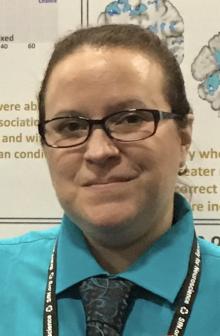
Dr. Amanda Renfro is a cognitive neuroscientist serving as a postdoctoral fellow in the Computational Decision Neuroscience Laboratory at the National Institute of Mental Health (NIMH) under Dr. Silvia Lopez-Guzman. Dr. Renfro earned a B.S. in Psychology and terminal M.S. in Experimental Psychology from Eastern Kentucky University, then went on to receive a non-terminal M.S. in Psychology and her Ph.D. in Cognitive Neuroscience from Florida International University under the mentorship of Dr. Aaron Mattfeld. Her research interests focus primarily on cognitive processes which influence decision-making, as well as the neurobiological mechanisms which give rise to these phenomena. In her doctoral studies, Dr. Renfro used functional neuroimaging techniques to investigate prospective memory-guided decision-making and is now interested in how value and pain may also influence choice for both clinical and non-clinical populations.
Siyu Wang, Ph.D. (NIMH)

Siyu is a postdoctoral fellow in the Section on Learning & Decision Making, led by Dr. Bruno Averbeck at the National Institute of Mental Health. His research investigates the neural circuitry and computational mechanisms underlying goal-directed behavior.
He received his B.S. in Mathematics at University of Science and Technology of China in 2015, and his Ph.D. in Psychology from University of Arizona in 2020. His past work studied the computational mechanism of explore-exploit decisions in humans and rodents.
Franco Giarrocco, Ph.D. (NIMH)
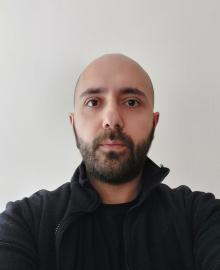
Franco is a postdoctoral fellow in the Section on Learning & Decision Making led by Dr. Bruno Averbeck at the National Institute of Mental Health. His research investigates how motivational and motor-related regions across cortico-basal ganglia circuits integrate stimulus-value information with motor information to drive reinforcement learning. His CCB project combines the comparison of human and non-human primates’ behavior during reinforcement learning tasks and large-scale neuronal recordings in non-human primates.
Franco earned his B.S. in Biology from the University of Ancona (Italy) in 2011, M.Phil. in Neurobiology in 2015, and Ph.D. in Behavioral Neuroscience from Sapienza University of Rome (Italy) in 2020. His past work investigated the behavioral and neuronal mechanisms of selective inhibition, as well as perceptual and motivational aspects underlying the inhibitory control of movements in non-human primates.
Ryan Lingg, Ph.D. (NIMH)
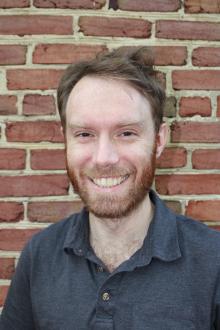
Ryan is a Postdoctoral Fellow working with Dr. Mario Penzo in the Section on the Neural Circuits of Emotion and Motivation at the National Institute of Mental Health (NIMH). His research investigates the neural mechanisms underlying defensive behaviors and how these are altered during stress. His CCB project focuses on characterizing neural activity in thalamo-cortical projections in response to threatening stimuli during metabolic challenges.
Ryan earned his Ph.D. in Behavioral Neuroscience from the University of Iowa under the mentorship of Dr. Jason Radley. During his Ph.D., Ryan worked to investigate neural circuit control of stress hormone release and how these contributed to fear generalization.
Kelsey Sundby, Ph.D. (NINDS)
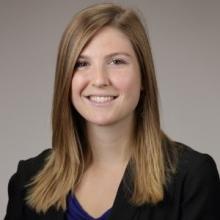
Kelsey is a Postdoctoral Fellow working with Dr. Kareem Zaghloul at the National Institute of Neurological Disorders and Stroke. Kelsey is interested in how top-down control processes affect memory and behavior. As a CCB fellow, Kelsey will test the role of a frontal-basal ganglia network in flexible decision-making using intracranial neural recordings from patients undergoing deep brain stimulation surgery.
Kelsey received her PhD in Experimental Psychology with an emphasis in cognitive and behavioral neuroscience from the University of California San Diego. Under the mentorship of Dr. Adam Aron, Kelsey’s doctoral research studied the neural mechanisms underlying executive control over both actions and memory. Outside of the lab, you’ll find Kelsey running, hiking or exploring new restaurants in D.C.
Third Year Fellows
Khushbu Agarwal, Ph.D. (NIAAA)

Currently as a postdoctoral visiting fellow in the SenSMet unit, NIAAA at NIH, Dr. Khushbu Agarwal is working with Dr. Joseph’s group to study the link between chemosensation, brain function, and behavior in addictive conditions such as obesity, and alcohol use disorder (AUD). The focus is to understand the reward associated neural mechanisms associated with chemosensory and physiological changes in obesity and AUD individuals. To address the objective of her study a battery of psychophysical, physiological, cognitive, and neuroimaging assessments are conducted. She has been granted the prestigious CCB NIH fellowship in 2022 and her CCB project aims at characterizing the olfactory function of the AUD individuals and determine the functional brain cue reactivity to rewarding odor stimuli and explore if inflammation is associated with the olfactory measures and altered cue reactivity craving and reward responses in AUD population.
She has completed her Ph.D. studies from All India Institute of Medical Sciences (AIIMS), New Delhi, India in the year 2018. During her Ph.D studies she gained extensive experience in molecular biology and multimodal MRI techniques in clinical population like patients with breast cancer and brain disorders including obsessive compulsive and bipolar disorders.
Diana Burk, Ph.D. (NIMH)
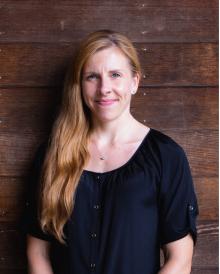
Diana is a postdoctoral fellow in the Section on Learning & Decision Making, led by Dr. Bruno Averbeck at the National Institute of Mental Health. Her research investigates the neural representation of primary and secondary rewards and motivation during reinforcement learning. Her CCB project involves combining computational modeling and electrophysiology in awake, behaving non-human primates to measure neural activity during learning.
She received her B.S. in Biomedical Engineering from the University of Virginia in 2011, M.Phil in Neuroscience from the University of Cambridge in 2013, and her Ph.D. in Neuroscience from Brown University in 2020. Her past work has been in various areas of neuroscience, including the neural control of movement, perceptual decision making, and visual object recognition in humans and non-human primates.
In her free time, she enjoys exploring trail systems through running and bike racing.
Tommy Gunawan, Ph.D. (NIAAA)

Dr. Tommy Gunawan is a Visiting Postdoctoral Fellow at the Human Psychopharmacology Laboratory and Office of the Clinical Director under the guidance of Dr. Vijay Ramchandani at NIAAA. He is currently investigating the neurofunctional domains underlying alcohol use disorder. His CCB project will look at the interactions between ALDH2 polymorphism and famotidine on alcohol response, alcohol reward, alcohol motivation, and metabolism in both clinical and preclinical models. His goal is to understand drug-seeking and polydrug use behavior and to develop methods for translating between preclinical and clinical research.
Dr. Tommy Gunawan was born in Indonesia, grew up in Singapore, and completed his undergraduate and graduate studies in the United States. He earned his Ph.D. in Behavior, Cognition, and Neuroscience from American University in 2020. He is interested in the neuropsychopharmacology of addictive drugs. He enjoys nature, hiking, cooking, and chess.
Tingting Liu, Ph.D. (NIDA)

Dr. Tingting Liu is currently a postdoctoral researcher in Technology and Translational Research Unit in Translational Addiction Medicine Branch, at NIDA IRP. Her project within the CCB aims to investigate the neural mechanisms and behavioral consequences of alcohol-related stigma among heavy drinkers.
Dr. Tingting Liu received her Ph.D. in psychology from the University of Michigan. She utilizes novel interdisciplinary methodologies from psychology, neuroscience, and computational text analysis to investigate social relationships in mental health and substance use behaviors. She likes travelling and photography.
Zilu Ma, Ph.D. (NIDA)

Zilu is a Post-doctoral Fellow in Dr. Yihong Yang’s lab at the National Institute on Drug Abuse (NIDA). As a first year CCB Fellow, Zilu will study role of dorsal striatum circuits in relapse to opioid seeking by combining functional magnetic resonance imaging (fMRI), pharmacological inactivation, and intermittent theta burst stimulation (iTBS) methods.
Zilu received her Ph.D. degree in Biomedical Engineering from The Pennsylvania State University in 2020. Her Ph.D. concentrated on developing awake resting-state fMRI methods to study brain function by incorporating it with different neuroimaging, behavioral, and neuromodulation methods in animal models.
Aijaz Naik, Ph.D. (NIMH)
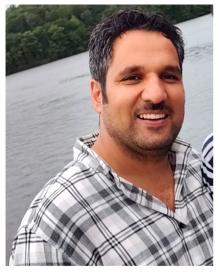
As a 2022 CCB Fellow, Aijaz is employing neuron tagging, whole brain imaging, behavior, transgenic and optogenetic strategies in mice to understand the neural circuits and mechanisms of frustration-effect following withholding of expected rewards. Disentangling the neural circuits mediating frustration will shed light on how dysfunction in dedicated circuits may lead to low frustration tolerance and propensity for aggression seen in Children and Teens with Irritability. Neuroscience of irritability is still in infancy, Aijaz aims to generate fresh insights that would aid translational efforts and precise therapeutics for irritability.
Aijaz joined NIH-IRP as a postdoctoral fellow in March 2021. He is currently a Research Fellow in Section on Synapse Development Plasticity in Zheng Li’s group at the National Institute on Mental Health (NIMH).
Aijaz received his Ph.D. from India, where he studied how intragenerational Protein malnutrition affects gliogenesis and cognitive functioning in F1 progeny rats. Aijaz moved to University of Virginia, School of Medicine as a Postdoctoral fellow (2018-2021), where he investigated mechanisms of seizure induced amnesia using activity dependent tagging of memory and seizure engrams, electrophysiology, and mouse behavior.
Outside of the lab, Aijaz loves to cook new recipes and hiking occasionally.
Katherine Savell, Ph.D. (NIDA)
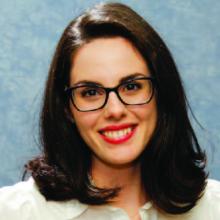
Katherine E. Savell, Ph.D., is a postdoctoral fellow in the laboratory of Dr. Bruce Hope in the Behavioral Neuroscience Research Branch of the National Institute on Drug Abuse Intramural Research Program. Her postdoctoral research focuses on understanding how drug-related associations are encoded and maintained in the brain by leveraging single nuclei RNA-sequencing and neuronal activity-dependent transgenic tools in preclinical relapse models.
Katherine earned a Ph.D. in Genetics, Genomics, and Bioinformatics, with a focus in neuroscience, from the University of Alabama at Birmingham. Outside of the lab, Katherine can be found in her garden or stained glass studio with a cat by her side.
Sunday Francis, Ph.D. (NIMH)
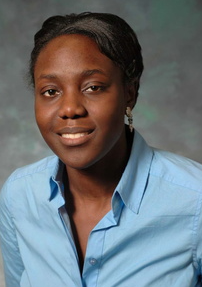
Dr. Sunday M. Francis is a research fellow. Currently, she is a member of the Noninvasive Neuromodulation Unit helmed by Dr. Sarah H. Lisanby where her research interests include utilizing noninvasive brain stimulation to further understand neurodevelopmental disorders (NDDs) (e.g., autism, pediatric OCD, and ADHD) and the potential use of these techniques in treatments that target transdiagnostic symptoms of NDDs.
She was awarded the CCB Fellowship in 2022 to utilize noninvasive neuromodulation, specifically transcranial magnetic stimulation (TMS), to probe networks associated with compulsivity and impulsivity in dimensionally measured non-clinical populations. A long-term goal of this research is to optimize TMS to treat individuals with impairments driven by these neurocognitive endophenotypes.
Dr. Francis completed her PhD in Computational Neuroscience from the University of Chicago exploring neuroplasticity in cortical motor areas. During her post-doctoral training at the University of Minnesota, she researched autism spectrum disorder (ASD) utilizing molecular techniques, eye-tracking, imaging, and other methods to investigate brain connectivity and the underlying neural mechanisms of this condition. Additionally, during her time at Minnesota, Dr. Francis developed non-invasive brain stimulation techniques through collaborations in cerebral palsy and NDDs.
